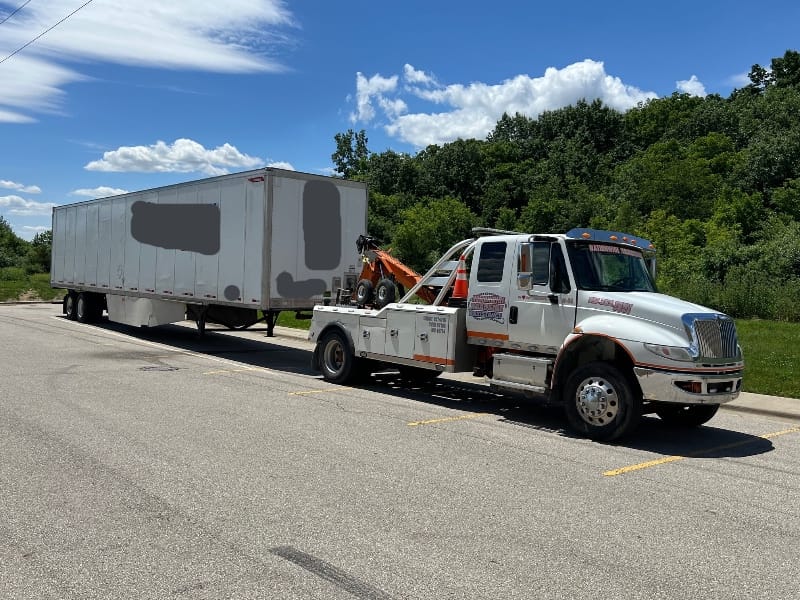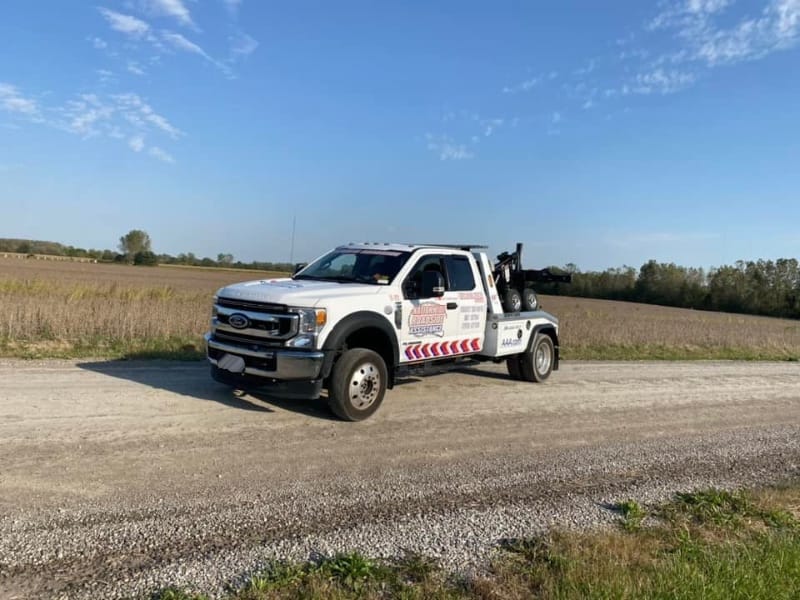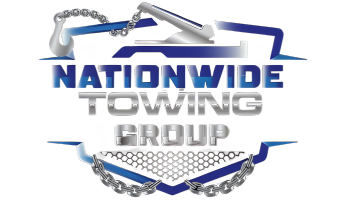When the Rig Turns on Itself
You feel it before you see it: the trailer drifting out of sync, the cab pulling the wrong way, the whole rig starting to fold in on itself. That’s a jackknife, and once it starts, recovery isn’t guaranteed. Road conditions can change mile to mile, this kind of traffic incident turns a bad day into a shutdown: trailers twisted across lanes, freight spilled, drivers shaken. Our I-94 heavy towing knows: many jackknives start with something small: a brake tap, a patch of ice, a poorly balanced load. Let’s have a closer look at what causes jackknifing and what truckers can do to stop it before it starts.

Loss of Traction Turns Control into Chaos
The most common cause of jackknifing is simple: your tires lose grip while your trailer keeps pushing forward. Rain, ice, snow, or even wet leaves can reduce road friction to the point where braking sends your trailer sideways.
It’s worse when you’re empty. With no load weight to anchor the trailer, it swings easier and reacts faster. And on highways, where speeds are high and weather can turn in an instant, that risk multiplies.
Hard Braking Is Like Hitting a Panic Button
You’re heading downhill. The car ahead taps their brakes. You react, but too hard, too fast. And that’s it. The tractor slows. The trailer doesn’t. Now it’s sliding forward, pivoting, and you’ve got a sideways 53-footer turning your truck into a roadblock.
Hard braking, especially on curves or slick surfaces, is one of the top triggers of jackknifing.
We recommend using engine brakes or downshifting to control speed instead of relying on sudden stops. When you do need to brake, ease into it. Letting the trailer stay in line with the cab is the name of the game.
Improper Loading Turns the Trailer into a Pendulum
Load distribution makes or breaks stability. When weight is concentrated too far to the rear or too far forward, it changes how the trailer responds in a quick maneuver.
A poorly balanced load makes the trailer swing wider and respond more slowly to the cab’s direction. That swing is what jackknifing feeds on.
We always check for balanced cargo when we assist a jackknifed rig. Uneven loads and unsecured pallets are usually part of the picture.
Here’s what every hauler should double-check:
- Weight is evenly spread front to back and side to side.
- Heavy items are centered and low in the trailer.
- Cargo is secured to avoid shifting.
Prevention Starts with the Driver
Speed amplifies every risk. Add in Michigan weather: fog, black ice, freezing rain, and you’re dealing with a highway that doesn’t forgive mistakes. Jackknifing isn’t inevitable. Most of the time, it’s preventable. Here’s what to stick to:
- Keep your speed appropriate for weather and road conditions.
- Use gradual braking. Let your trailer follow, not lead.
- Make sure your load is balanced and secure.
- Check tire tread and brakes before hitting the road.
- Stay alert, especially on curves and during poor visibility.
Although jackknifing can happen to anyone, these driving habits can help to keep a rig upright and straight. It might cost you a few extra minutes, but it’ll save you hours waiting for our I-94 heavy towing team.

Nationwide Towing: Helping with All Your I-94 Heavy Towing Needs
Jackknifed trucks don’t just block lanes, they put lives at risk and grind freight schedules to a halt. At Nationwide Towing, we handle I-94 heavy towing recoveries all year long. Our I-94 heavy towing experts can pull loaded semis out of ditches, realign twisted trailers, and clear full-lane blocks during snowstorms.
Our I-94 heavy towing team responds quickly because we know how fast these situations escalate. We show up with the gear and knowledge to get your truck upright, your trailer untangled, and your route cleared, so the highway can move again.
Whether it’s ice, a blown tire, or just one wrong move, we’ve got the I-94 heavy towing equipment and the experience to recover your rig and get you back on the road.
